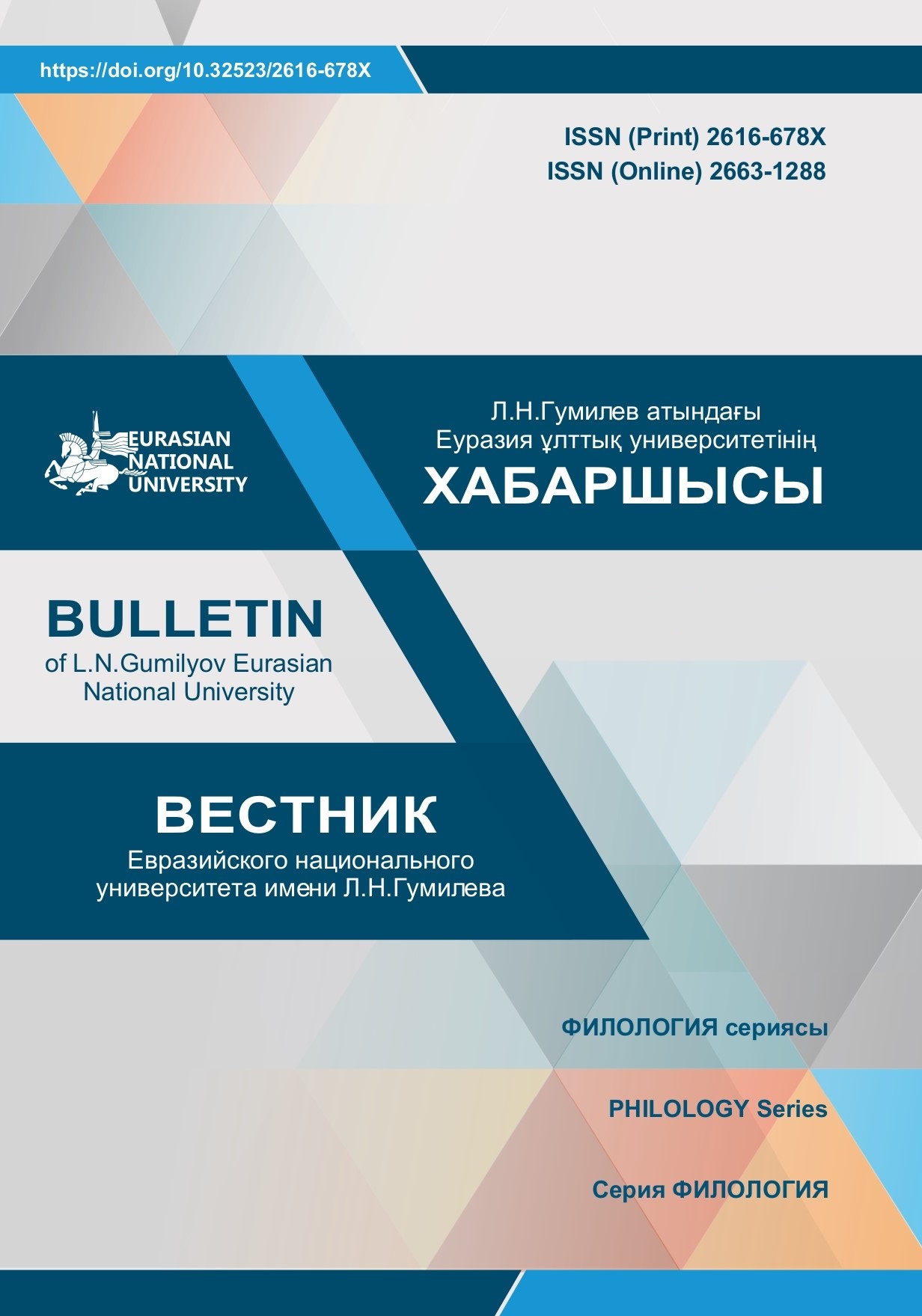Ethnolinguistic character of applied geometry terms of «measure», «dimension»
Views: 317 / PDF downloads: 381
DOI:
https://doi.org/10.32523/2616-678X-2022-141-4-55-66Keywords:
measure, dimension, distance, length, volume, area, space, terms of applied geometryAbstract
This article is devoted to one of the topical issues in the field of applied geometry, the explanation
of terms reflecting our national identity and spirituality, the definition of the way to create them. The study
considers the ethnolinguistic, semantic nature of the units of measurement of length, distance, volume, space in terms of applied geometry. In order to form a national vision and understanding of the terms of applied
geometry, the main task of this research work is to analyze the etymology, ethnolinguistic meaning and scope
of the above-mentioned concepts of measure in the process of language development. In this regard, the
interpretation and explanations of the names, expressing the concepts of measures in terms of cognition of the
Kazakh people are given .
The purpose of the research is a comparative analysis of the ethnolinguistic nature of names expressing
the concept of measures of applied geometry (length, distance, volume, space, thickness, depth, height, etc.) in
Kazakh, Russian and English. Linguistic, ethnographic, scientific works of foreign and Kazakhstani scientists
served as the material for the analysis, as well as etymological, explanatory dictionaries were used in the work.
Etymological aspects of the terms taken as the object of research are analyzed within the framework of
ethnology, cultural studies, cognitive units.
The authors come to the conclusion that the concepts of “measures” and “measurements” are a channel
connecting consciousness with national existence. The representation of the world in the context of the concept
of “measures” defines the role of linguistic units as a cultural code in the spiritual space.

Downloads
Published
How to Cite
Issue
Section
License
Here is the academic English version suitable for publication on the journal website:
The academic journal “Bulletin of L.N. Gumilyov Eurasian National University. Philology Series” adheres to an Open Access policy for all published materials, based on the principle of free and equitable dissemination of scholarly knowledge. The Editorial Board believes that open access to research results contributes to the advancement of philological science, strengthens academic communication, and promotes the integration of national research into the international scientific community.
1. Free and Open Access
All articles published in the journal are made openly available on the official website of the journal and are accessible to all users without restrictions, registration, or payment.
Users are entitled to:
-
freely read and download materials;
-
copy and distribute the texts of publications;
-
print articles;
-
use materials for scientific and educational purposes, provided that proper attribution is given to the author(s) and the original source of publication.
2. Licensing
Journal materials are distributed under the terms of the Creative Commons Attribution-NonCommercial 4.0 International (CC BY-NC 4.0) license:
https://creativecommons.org/licenses/by-nc/4.0/
This license permits the use, copying, distribution, and adaptation of the materials for non-commercial purposes, provided that appropriate credit is given to the author(s) and a link to the original publication is included.
3. Benefits of Open Access
The Open Access policy ensures:
-
increased visibility and citation of scholarly publications;
-
prompt dissemination of research findings in the fields of philology, linguistics, literary studies, and translation studies;
-
expansion of international academic cooperation;
-
access for readers to up-to-date scientific information without financial or technical barriers.
The Editorial Board is committed to ensuring transparency in editorial processes, maintaining high standards of peer review, and providing broad accessibility to research outcomes in the field of philological studies.









